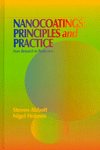AkzoNobel and Microsoft Announce Quantum Computing Partnership

AMSTERDAM — AkzoNobel and Microsoft have teamed up to explore how quantum computing could help fast track the development of high-performance and more sustainable paints and coatings. Scientists from both parties will co-develop what will effectively be a virtual laboratory. The aim is to conduct experiments using quantum computing and other Microsoft Azure cloud services.
Quantum chemical computation is capable of simulating chemical reactions at an unprecedented level of accuracy. Together, Microsoft and AkzoNobel will explore how this can contribute to creating more advanced and sustainable products through collaborative experimentation and development.
“This is a really exciting partnership which has the potential to be truly groundbreaking,” said Klaas Kruithof, AkzoNobel’s Chief Technology Officer. “We’re incredibly proud to partner with Microsoft and investigate how we can take our digital research into a new dimension. Innovation demands collaboration and this is a fantastic way for us to keep pushing boundaries so we can make a sustainable and long-lasting difference to our customers and the planet.”
Dr. Matthias Troyer, Distinguished Scientist in Microsoft’s Azure Quantum program, added, “The promise of quantum computing and other Azure services to accelerate solving chemistry and materials problems – and their associated workloads – is immense. We’re thrilled to partner with AkzoNobel to drive new value and deliver world-changing impact.”
Quantum chemistry could help to overcome many of the practical boundaries associated with traditional laboratory methods – such as availability of raw materials, physical equipment capacity constraints, toxicity and environmental conditions. It could drastically reduce the time it takes to find substitute ingredients for making products more sustainable, with new functionalities, or for replacing scarce raw materials.
“Combining our track record for pioneering product development with Microsoft’s cloud and quantum computing expertise represents another huge step forward in the digitization of our research,” explains Pim Koeckhoven, Technology Director in Research and Development at AkzoNobel. “Up until now, the quality of traditional computer simulations hasn’t been up to the task. Microsoft’s Azure Quantum system offers incredible opportunities for us to take our research into an entirely new digital realm and speed up the development of new novel catalysts and chemical reactions.”
Additional information about AkzoNobel is available at www.akzonobel.com.
Looking for a reprint of this article?
From high-res PDFs to custom plaques, order your copy today!








